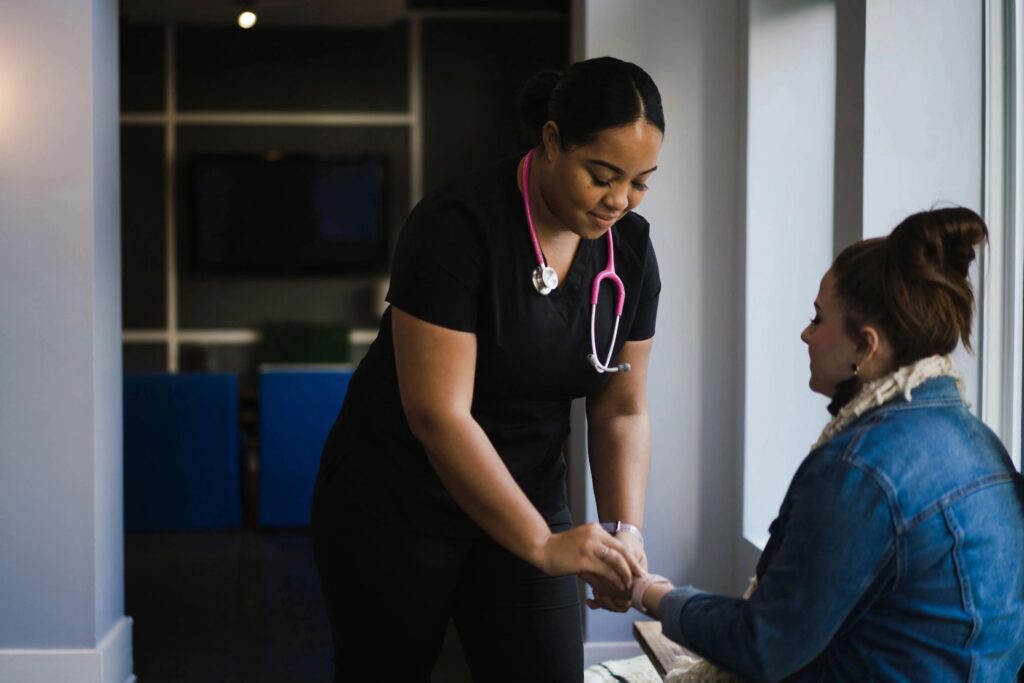
ATLANTA – Georgia House lawmakers heard testimony Monday from state health officials urging more resources for rural and minority communities to combat the ongoing coronavirus pandemic.
“Nationwide, Black people have died from the coronavirus at a rate 1.4 times the rate of white people,” said Dr. Dominic Mack, a family medicine professor at Morehouse School of Medicine. “In Georgia, just being Black means you have a higher chance of contracting COVID.”
Dr. Patrice Harris, an immediate past president of the American Medical Association who is based in Atlanta, told the House Health and Human Services Committee the pandemic has impacted communities of color more than others.
Harris said those communities have been hardest hit because of a lack of communication technologies, such as broadband, as well as funds for mental health services.
State Rep. Sharon Cooper, R-Marietta, the committee’s chairman, said House Speaker David Ralston “is committed to get broadband into rural areas, as well as increased mental health services. We’ve made progress, but we have a long way to go.
“One of our biggest problems surrounds our workforce,” Cooper said. “We are at rock bottom when it comes to the number of social workers and psychologists that we need.”
As of Monday, according to the state Department of Public Health, there have been more than 1.2 million confirmed coronavirus cases in Georgia since the pandemic began, along with almost 22,000 deaths and more than 79,000 hospitalizations.
Mack showed maps from the National Center for Primary Care showing high concentrations of COVID-related deaths in minority communities, the same communities that also have high rates of diabetes, hypertension and other chronic health issues.
Dr. Theresa Jacobs, clinical director of the Georgia Primary Care Association, said her organization represents Federally Qualified Health Centers (FQHC). In Georgia, there are 34 FQHCs that serve 600,000 residents each year at 229 sites.
“I get frustrated when I hear there’s a lack of health care in Georgia,” said state Rep. Jodi Lott, R-Evans. “I get frustrated when I hear we don’t provide health care to our poor communities.”
Lott and her husband own Evans Rehabilitation and Wellness.
“We devalue our primary care physicians with their reimbursements,” Lott said. “The reimbursement rates for our primary care physicians are pitiful.”
Marlon Harris, pastor of New Life Church, spoke about the need for public-private partnerships to improve health care in underserved communities.
“More than 20,000 clients have been served in our community centers,” Harris said. “Many are chronically ill, uninsured and underinsured, at the mercy of state and federal care, mentally ill, suffering from obesity and hypertension, single moms and working dads, and school-age children who only eat what’s offered at their school cafeterias.”
Harris said more organizations are needed like the Health Education Advocacy Learning (HEAL) Collaborative, which was founded by former state Rep. Howard Mosby of Atlanta. Mosby, who also attended the hearing, founded HEAL as a not-for-profit organization serving minority populations on health care availability and access to treatment options.
This story is available through a news partnership with Capitol Beat News Service, a project of the Georgia Press Educational Foundation.